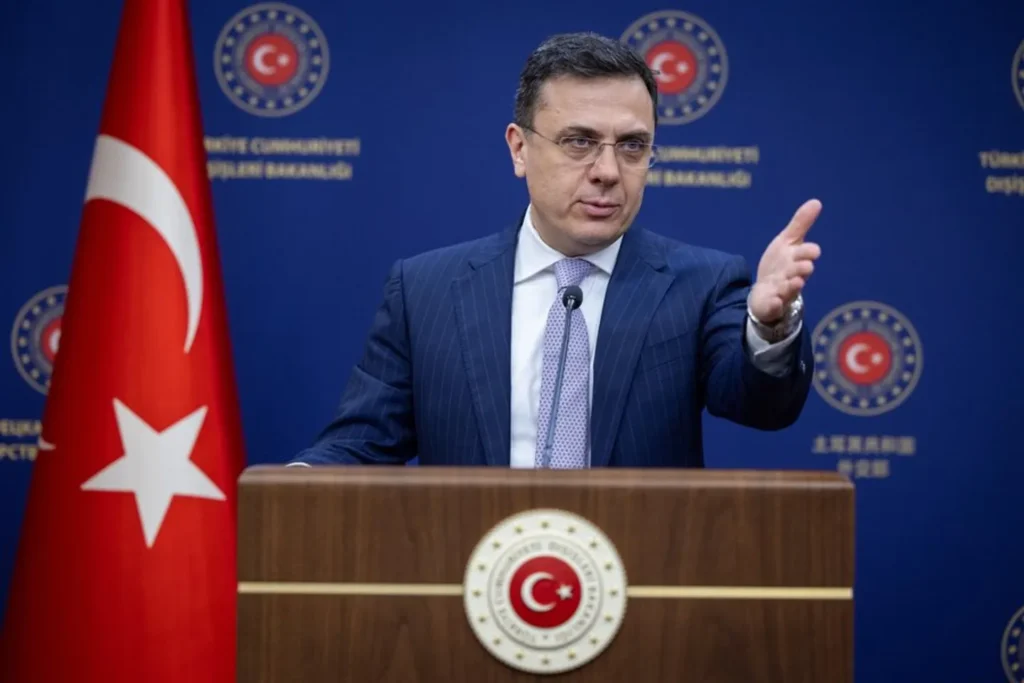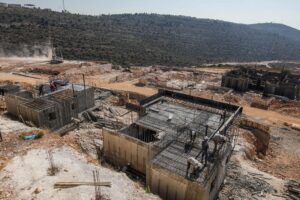Türkiye Reaffirms Commitment to Fostering Cooperation Between Communities in Cyprus at UN Meeting

Antara, The Gulf Observer: Türkiye remains steadfast in its sincere efforts to foster a spirit of cooperation between the two communities on the island of Cyprus, the Turkish Ministry of Foreign Affairs announced on Friday, following an informal meeting held at the United Nations headquarters in New York.
Speaking on behalf of the ministry, spokesperson Öncü Keçeli said that Türkiye, in close coordination with the Turkish Republic of Northern Cyprus (TRNC), participated in the New York talks — held Wednesday and Thursday — to further dialogue and collaboration between the Turkish Cypriot and Greek Cypriot communities.
“Türkiye will continue our efforts in good faith and close consultation with the Turkish Cypriot side to promote a culture of cooperation between the two sides on the island,” Keçeli emphasized.
The New York meeting followed a similar gathering in Geneva in March, where six key areas of cooperation were identified. At the latest session, participants reviewed progress made over the past four months. Notable developments included the establishment of a technical committee on youth, the restoration of cemeteries, and cooperative efforts related to the environment and climate change.
Keçeli said that the two sides are close to finalizing an agreement to initiate demining activities, with only minor technical details left to be resolved. However, he expressed regret that no progress had been made on two key issues: the opening of four new border crossings and the joint generation of solar energy within the island’s buffer zone.
He pointed out that while the Turkish Cypriot side accepted a compromise proposal by the UN on border crossings, the Greek Cypriot side continued to introduce new conditions, backtrack on previous commitments, and revive proposals that had already been rejected. A similar impasse was reported regarding solar energy cooperation, which was hindered by what Keçeli described as the Greek Cypriot side’s uncompromising stance.
He confirmed that talks on both unresolved issues will continue with the support of UN Secretary-General Antonio Guterres’s personal envoy on Cyprus, María Ángela Holguín Cuéllar.
Keçeli also announced that during the New York meeting, TRNC President Ersin Tatar and Greek Cypriot leader Nikos Christodoulides agreed to begin work on four new areas of cooperation: establishing a consultative mechanism for civil society, exchanging cultural artifacts, managing air quality, and addressing microplastic pollution. Discussions on these topics are expected to take place on the island in the coming days.
“Reaching consensus on these four new areas of cooperation helps lay the groundwork for the kind of collaboration that the two neighboring states on the island will pursue in a post-settlement scenario,” Keçeli noted.
He concluded by criticizing the Greek Cypriot leadership’s continued resistance to cooperative initiatives that could benefit both communities directly, particularly the issue of new border crossings.
“This mentality demonstrates why a solution outside President Tatar’s two-state vision is no longer viable on the Cyprus issue,” he said.
Cyprus has long been divided between its Greek Cypriot south and Turkish Cypriot north. The division dates back to ethnic violence in the 1960s, followed by a 1974 Greek Cypriot coup seeking unification with Greece, which triggered Türkiye’s intervention as a guarantor power. The TRNC was declared in 1983.
Despite repeated UN-led efforts, including failed peace talks in 2017, a comprehensive settlement remains elusive. The Greek Cypriot administration joined the European Union in 2004, the same year it rejected a UN reunification plan in a referendum.


